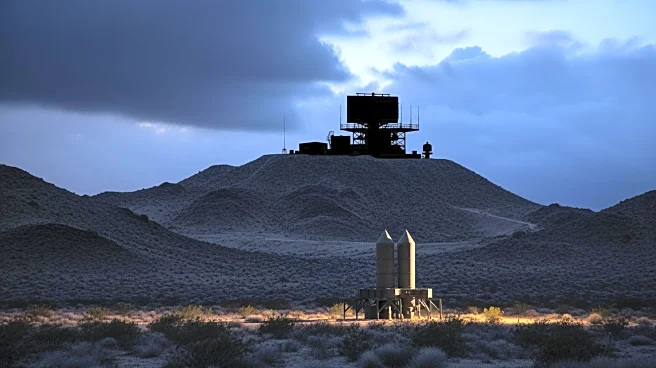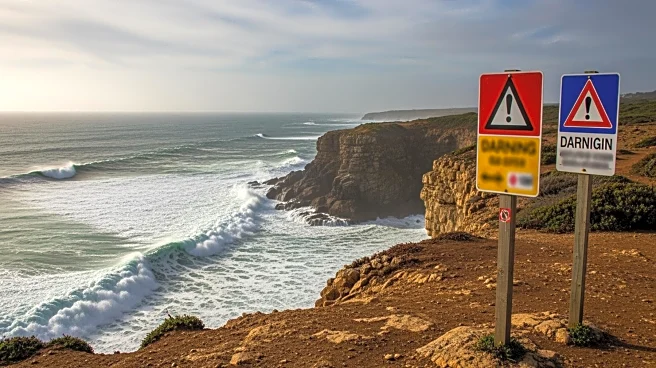What's Happening?
Former British Prime Minister Tony Blair is set to head the 'Peace Council' that will temporarily govern Gaza as part of U.S. President Donald Trump's postwar plan. Blair is scheduled to meet in London
with families of slain hostages whose bodies remain in the Gaza Strip. His involvement in the plan has sparked disappointment among many Palestinians due to his past role in the Iraq War and his support for Israel. The Peace Council is part of a broader strategy drafted by Blair, which includes a 20-point plan for postwar governance in Gaza.
Why It's Important?
The appointment of Tony Blair to lead the Peace Council is significant as it marks a major step in President Trump's postwar strategy for Gaza. Blair's leadership could influence the region's political dynamics, given his historical ties and controversial reputation among Palestinians. The plan aims to stabilize Gaza and potentially improve relations between the U.S. and Middle Eastern countries. However, Blair's involvement may also lead to increased tensions, as his past actions have left a lasting impact on regional perceptions.
What's Next?
Blair's upcoming meeting with the families of slain hostages could be a pivotal moment in addressing humanitarian concerns and fostering dialogue. The Peace Council's establishment may lead to further diplomatic engagements and negotiations aimed at achieving long-term peace in Gaza. Stakeholders, including Palestinian leaders and international observers, will likely monitor the situation closely to assess the effectiveness of the plan and its implications for regional stability.
Beyond the Headlines
The ethical implications of Blair's appointment are noteworthy, given his controversial history in the region. His leadership may challenge existing narratives and require careful navigation of cultural sensitivities. The Peace Council's success could redefine international approaches to conflict resolution and governance in postwar settings.









